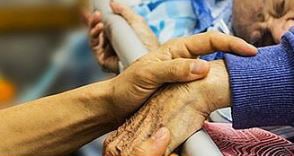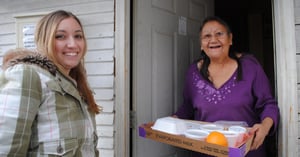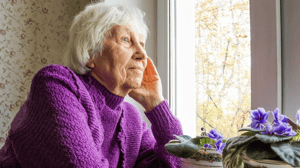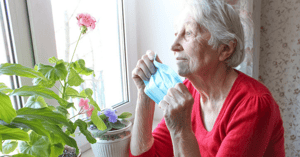Somewhere along the line America's pop culture began to malign millennials. They became known as the narcissistic generation that would rather play video games than outdoor sports; craved YouTube fame; wanted only to be tech entrepreneurs; decorated with laptops and futons; were summed up as lazy and self-centered.
The COVID-19 pandemic swept the nation, killing more than 184,000 residents and staff of nursing homes and other long-term care facilities. The post pandemic response to this massacre has been confusion, doubt, and indecision on the part of the elderly and their caregivers about the use of long-term care facilities.
Topics: Elderly/Aging Long Term Care, what social workers do, Covid-19/Pandemic
It is undeniable that most of us prefer not to look too closely at what goes on in nursing homes across the country. In fact, unless we have a need of nursing home services for ourselves or for our elderly loved ones, we hardly notice them at all. This, of course, is a natural aversion to sickness, aging, and death. However, after COVID-19 ravaged the elderly population in nursing homes, infecting 654,000 residents and killing 132,000 elderly Americans, social workers began to take a closer look at how nursing homes are run and how we can improve the service they seek to provide.
Topics: Elderly/Aging Long Term Care, social workers, Covid-19/Pandemic
We were surprised by the results of our recent mini-poll, when we asked six case workers serving our elder population what they considered the most pressing current problem elders are facing. 3 out of 6 (50%) said, "internet scams". Internet scams?! What’s going on now? What kind of scoundrel would cheat the elderly out of the last of their nest egg?
Case workers tell us that the shameful practice of scamming seniors is on the rise. With the elderly population growing, seniors racked up more than $3 billion in losses this past year. Case workers say that the heart-breaking irony of elder fraud is that seniors are targeted because they tend to be trusting and polite.
Topics: Elderly/Aging Long Term Care, caseworkers, social justice
Everyone knows how the pandemic walloped the elderly in 2020. Nursing homes became the epicenter of COVID-19 deaths. No, Mr. Sinatra, it was not “a very good year” for the elderly.
Increasing Demand…
Meals On Wheels, which delivers meals to the elderly in their homes and at senior centers, has seen demand for their services explode since the pandemic started.
- When COVID-19 hit, a staggering 89% of Meals On Wheels programs reported increased demand for meals, practically overnight.
- 79% of Meals On Wheels programs saw their demand double.
- Older adults who were mobile prior to the pandemic can no longer safely go to stores to buy their own food, and many do not have loved ones close by to help them through this time. Add this to the roster of seniors who were already homebound.
Topics: Elderly/Aging Long Term Care, Homeless & Food Pantry, Covid-19/Pandemic
The letter below from a young nurse to her grandmother touches on the painful separation from one another we all feel that has caused our country’s uneven response to, and resulting suffering from, this terrible pandemic.
Ellen is a 31-year-old nurse working in a Seattle intensive care unit for the past six months watching Covid patients die alone. She sat down after her shift one night and wrote this letter to her grandmother, who she hadn’t visited in more than a year.
I think this thoughtful young woman captures the suffering that social separation can cause. With her permission, I publish her touching letter below...
While singing the praises of our dedicated case workers during the coronavirus pandemic, I have received numerous inquiries from readers who do not know what case workers do in hospital and post-care settings. Apparently, the critical role of medical social workers is not clear to the general public. I thought it best, therefore, to let them speak for themselves.
Topics: Elderly/Aging Long Term Care, caseworkers, Covid-19/Pandemic
Adults 65 and older account for 16% of the US population but 80% of COVID-19 deaths. Even as most states begin to gradually reopen society to restart a stalled economy, the message to the elderly is “NOT YOU”. You best - “STAY HOME” – “ISOLATE” - “QUARANTINE” while the rest of society risks illness trying to get on with life.
Social workers who work with the elderly are concerned. They say that during times of crisis, mental health cannot be overlooked. Loneliness and social isolation for older adults have a deep, emotional impact, sometimes leading to social disorders such as depression and anxiety. Social isolation has also been linked to increases in emergency department visits, hospitalizations, and nursing home placements.
Topics: Elderly/Aging Long Term Care, mental health, social workers, Covid-19/Pandemic
Great responsibility yields great reward. This is especially true of SARCOA (Southern Alabama Regional Council on Aging), the Area Agency on Aging (AAA) serving senior citizens of Barbour, Coffee, Covington, Dale, Geneva, Henry, and Houston counties of southeast Alabama. By continuously seeking ways to better serve the rapidly growing senior population through planning, coordinating, and developing community levels of service, SARCOA is able to make a huge difference as one of 13 AAA’s in Alabama, and one of more than 650 AAA’s in the nation
Topics: Elderly/Aging Long Term Care, Case Studies, FAMCare, How Clients Use FAMCare











